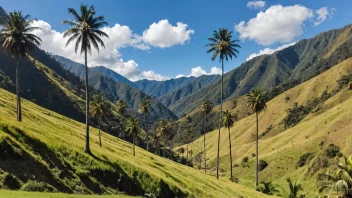Bhutan, often referred to as the "Land of the Thunder Dragon," is a small yet remarkable kingdom nestled in the eastern Himalayas. Known for its stunning landscapes, vibrant traditions, and commitment to preserving its cultural heritage, Bhutan offers a unique blend of the ancient and the modern. As travelers increasingly seek to understand the local culture, a comparison of traditional Bhutanese culture and the modern influences shaping it can provide valuable insights for visitors. This article delves into the key aspects of Bhutan's culture, examining the pros and cons of both traditional and modern elements, and how they coexist in this enchanting country.
Traditional Bhutanese Culture
Traditional Bhutanese culture is deeply rooted in Buddhist principles, which permeate every aspect of life in the kingdom. From festivals to daily practices, the influence of Buddhism is evident and celebrated.
Key Characteristics
- Religion and Spirituality: Buddhism is the state religion, and its teachings guide the moral and ethical framework of the society.
- Festivals: Vibrant festivals such as Tsechu, which are celebrated annually, showcase traditional dances, music, and attire.
- Art and Architecture: The country is renowned for its stunning dzongs (fortresses) and monasteries, characterized by intricate woodwork, vibrant colors, and symbolic carvings.
- Textiles: Bhutanese textiles, particularly the colorful fabrics used in traditional dress, are a significant aspect of cultural identity.
Pros of Traditional Culture
- Preservation of Heritage: Traditional practices ensure that the rich cultural history is preserved for future generations.
- Community Cohesion: Shared cultural practices foster a sense of belonging and unity among the Bhutanese people.
- Spiritual Connection: The emphasis on spirituality enriches the lives of individuals, promoting mindfulness and compassion.
Cons of Traditional Culture
- Resistance to Change: In some instances, a strong adherence to tradition may hinder progress and adaptation to modern challenges.
- Limited Global Exposure: A focus on traditional practices may restrict exposure to global ideas and innovations.
Modern Influences on Bhutanese Culture
Modernization has made its way into Bhutan, particularly since the 1990s, as the country opened its doors to tourism and embraced certain aspects of globalization. This introduction of modern influences has brought both opportunities and challenges.
Key Characteristics
- Urbanization: Cities like Thimphu and Paro have seen rapid development, with modern infrastructure and amenities.
- Technology: The rise of digital technology and social media is influencing communication and cultural exchanges.
- Education: A focus on modern education systems is reshaping the younger generation’s worldview and aspirations.
- Consumer Culture: The influx of international brands and products is altering consumption patterns among the Bhutanese.
Pros of Modern Culture
- Economic Development: Modernization has the potential to drive economic growth, providing opportunities for employment and innovation.
- Access to Information: Technology enables greater access to global knowledge, ideas, and cultural exchanges.
- Improved Quality of Life: Modern amenities and infrastructure contribute to a higher standard of living.
Cons of Modern Culture
- Cultural Erosion: The influence of Western culture may lead to the dilution of traditional practices and values.
- Social Disparities: While some benefit from modernization, others may feel left behind, exacerbating social inequalities.
Comparison of Traditional and Modern Influences
When comparing traditional and modern influences in Bhutan, it becomes evident that both play significant roles in shaping the identity of the nation.
Cultural Identity
Traditional culture provides a strong sense of identity and belonging, while modern influences introduce new ideas and perspectives. The challenge lies in finding a balance that honors tradition while embracing progress.
Economic Impact
Modernization can lead to economic growth, yet it may also create disparities within society. Traditional practices encourage sustainable living, which contrasts with the often-consumptive nature of modern life.
Social Dynamics
In a rapidly changing society, the younger generation often finds itself caught between respecting traditional values and adapting to modern lifestyles. This tug-of-war can create tension within families and communities.
Environmental Considerations
While traditional practices often emphasize harmony with nature, modern development can lead to environmental degradation if not managed sustainably. Bhutan has made strides in promoting Gross National Happiness and environmental conservation, yet the balance remains delicate.
Conclusion
In conclusion, Bhutan's unique culture is a tapestry woven from traditional values and modern influences. While traditional culture offers a rich heritage and a sense of community, modern influences bring opportunities for growth and development. For travelers seeking to experience Bhutan, understanding this dynamic interplay is essential. It is recommended to embrace both aspects—participating in traditional festivals and rituals while also engaging with the modern Bhutanese lifestyle. This holistic approach will provide a deeper appreciation of Bhutan's culture and the resilience of its people in navigating the complexities of a changing world.






